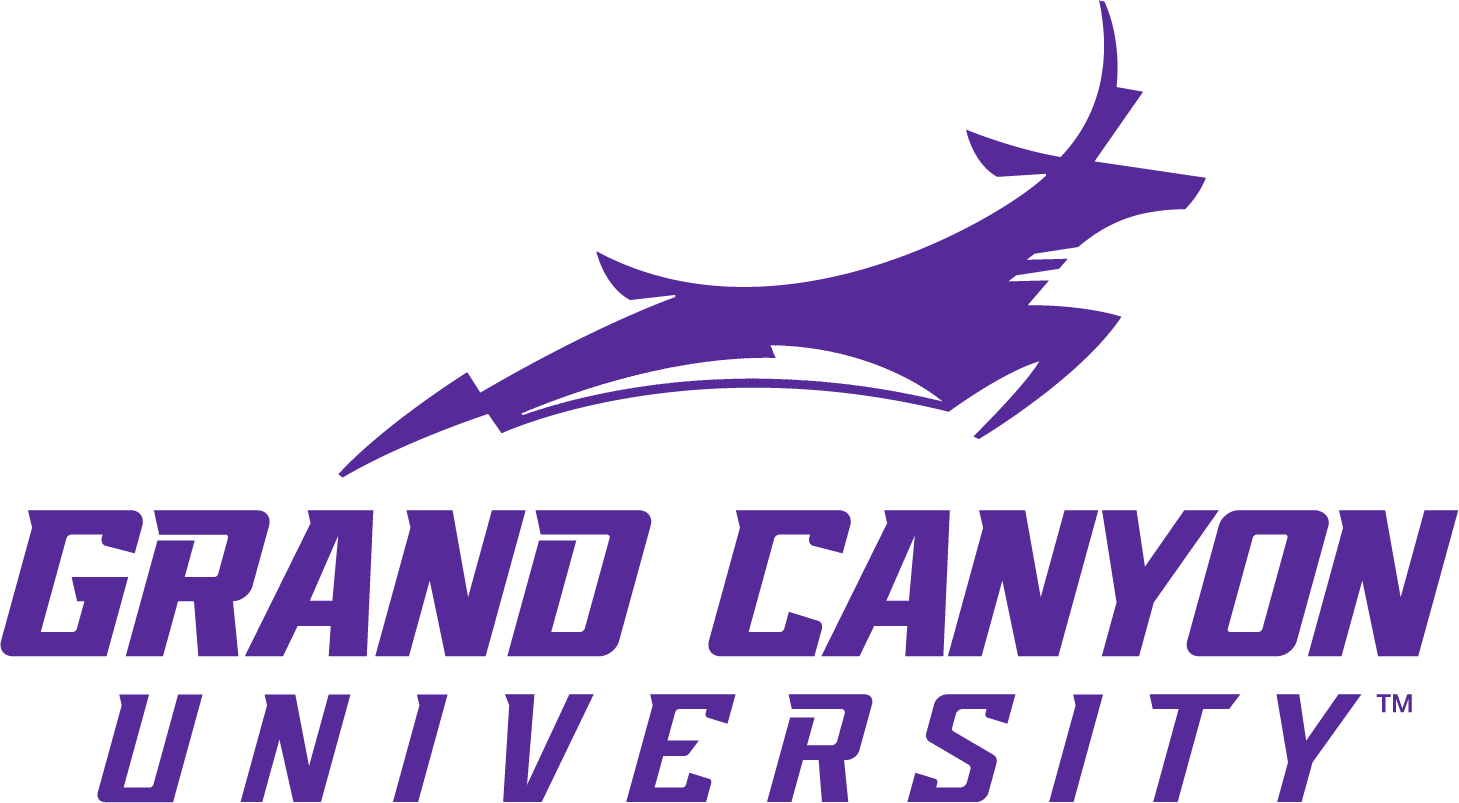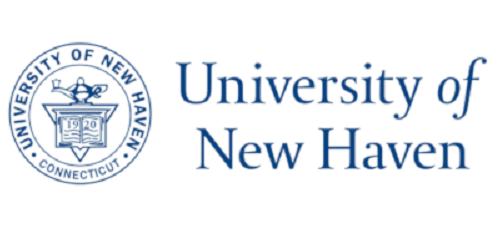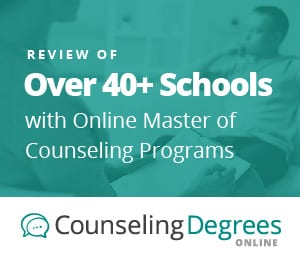Consider a Featured Online Counseling Program
| School and Program Information | Online Program? Entry Requirements |
Course Information |
|---|---|---|
| Walden University
MS in School Counseling
 CACREP Accredited CACREP Accredited |
✔ Online
GRE scores not required |
School counselors help students overcome obstacles and shape successful futures. Walden’s online MS in School Counseling program will give you a solid foundation in school counseling theories, approaches, and best practices while enabling you to gain hands-on experience. Learn More |
| Walden University
MS in Clinical Mental Health Counseling
 CACREP Accredited CACREP Accredited |
✔ Online
GRE scores not required |
Mental health counselors play a valuable role in helping people cope with life’s challenges. Walden’s online MS in Clinical Mental Health Counseling program can help you become the competent, compassionate counselor you know you can be. Learn More |
| Grand Canyon University
Master's Degree in Counseling
HLC and NASAC Accredited |
✔ 100% Online
Over 14 Specializations Available |
Affordable with No Out of State Tuition Learn More |
| Capella University
Bachelor of Science in Psychology
|
✔ Online
|
Choose from General Psychology, Applied Behavior Analysis or Pre-Counseling specializations Learn More |
| Capella University
BS in Psychology - Applied Behavior Analysis
|
✔ Online
No GMAT or GRE required |
Gain skills and knowledge to help transform the lives of people living with autism and other intellectual disabilities. Study with confidence in a program that meets the educational requirements for eligibility to take the Board Certified Assistant Behavior Analyst® (BCaBA) examination. Applicants must meet additional requirements to qualify. Learn More |
| Liberty University
MA: Clinical Mental Health Counseling (CACREP Accredited)
 CACREP Accredited CACREP Accredited |
✔ Online
Online with required intensives |
Our CACREP-accredited master’s in counseling degree online can help you become an ethical, well-trained mental health counselor with the knowledge, values, and skills you need to empower others to make positive changes in their lives. Online and on campus. Training Champions for Christ since 1971. Learn More |
| Northwestern University
Online MA in Counseling
 CACREP Accredited CACREP Accredited |
✔ Online
GRE Not Required Bachelor's Required |
Prepare to pursue licensure in as few as 18 months Learn MoreFull-time, part-time, and accelerated track options available |
| Capella University
Counseling & Therapy
 CACREP Accredited CACREP Accredited |
✔ Online
GRE Not Required |
Offering master’s degree programs in clinical mental health counseling and school counseling. Doctoral degree program available in counselor education & supervision. No GRE required. Learn More |
| Pepperdine University
Master’s Clinical Psychology (Licensed Professional Counselor)
|
✔ Online
No GRE Required Bachelor's Degree Required |
Bachelor's holders can prepare to become a licensed professional counselor online. With no GRE scores required to apply, the 24 month online MA in Clinical Psychology from Pepperdine allows you to advance your career and be a catalyst of change. Learn More |
*Sponsored Counseling Programs
Online CACREP Accredited programs | Online MPCAC Accredited programs
Counseling Careers
Featured Online Counseling Programs
An NCC license shows potential employers your expertise in the field, and advanced counseling positions may be limited to licensed applicants. It’s important to note that although this certification is voluntary, it’s a highly valued credential that shows the public and potential employers that you’ve met national standards. It’s the most widespread national certification in the world, offered in three specialties: addiction, clinical mental health, and school counseling.
In order to identify yourself as a counselor and begin treating patients, you’ll need to obtain licensure from the state. Licensing requirements vary by state.
NCC Requirements
The National Board for Certified Counselors (NBCC) establishes certain requirements that applicants must meet in order to take the NCC licensing examination:
- Education: “You must hold a master’s, education specialist/educational specialist, certificate of advanced study (CAS), or doctoral degree in counseling from either a Council for Accreditation of Counseling and Related Educational Programs (CACREP)-accredited degree program or a counseling program administered by a regionally accredited educational institution.”
- Postgraduate coursework: “Master’s programs must contain a required set of courses that are typically found in most CACREP-accredited programs. The NBCC provides a complete list of required courses on their website for you to review. You must complete at least 48 semester hours or 72 quarter hours of graduate-level coursework. The NCC degree must include at least 6 semesters or 10 quarter-hours of graduate degree–related supervised field experience in counseling.”
- Postgraduate counseling supervision: “You must document at least 100 hours of postgraduate counseling supervision over a minimum 24-month period.”
- Work experience: “You must document having completed at least 3,000 hours of postgraduate counseling work experience over a minimum 24-month period.”
- Ethics: “You must adhere to the NBCC’s Code of Ethics.”
NCC Certification Process
The licensing process can vary depending on your professional field and the state you live in. Most states have specific departments responsible for reviewing applications, processing application fees, and scheduling board examinations to finalize the licensing process.
In order to qualify for licensure in the field of counseling, you’ll be required to provide proof of completion of an accredited master’s degree program and proof of supervised work experience in a real-world setting under a licensed professional counselor (LPC), and successfully pass your state’s board examination for counseling professionals.
You must obtain a passing score on either the National Counselor Examination (NCE) or the National Clinical Mental Health Counseling Examination (NCMHCE). The NCE is a 200-item multiple-choice exam that covers all the skills and knowledge one would need in order to be an effective counselor. The NCMHCE consists of 10 clinical simulations designed to test your competencies on a broad spectrum.
Here are the types of NCC National Certified Counselor licensure:
- NCC: National Certified Counselor
- NCSC: National Certified School Counselor
- LCPC: Licensed Clinical Professional Counselor
- LPCC: Licensed Professional Clinical Counselor
Completing NCC license requirements and obtaining a license can pay off over the course of your career. Many counseling organizations only seek out licensed professionals to ensure that they provide the highest-caliber services to the public. Earning a license can open the door to a wide range of career options.
Counseling Degree Programs for Earning an NCC License
Students considering certification as National Certified Counselors can pursue specializations in one of three fields. The online master’s degree in counseling offers concentrations in mental health counseling, school counseling, and addiction counseling.
- Online Master’s in Clinical Mental Health Counseling: One of the most preferred online degree programs for students seeking the NCC designation is the Master’s in Clinical Mental Health Counseling. This degree program can provide students with rigorous learning and experience that can translate to hands-on intervention with patients in the field. This program may also include a field experience requirement that allow students to observe clinical practice in the field being performed by licensed and experienced counselors. If you are seeking NCC certification, this is definitely a great degree program to consider completing in the online setting.
- Online Master’s in School Counseling: The NCC also currently certifies learners that have specialized in the field of school counseling. Online Master’s in School Counseling programs can help you gain skills needed for helping children of school-age manage the everyday pressures of young life, as well as assist them with planning for future careers and educational opportunities. Students interested in this path can also complete a generalized online Master’s in Counseling and then additional post-master’s certification programs in school counseling prior to gaining their required experience.
- Online Master’s in Addiction Counseling: Online Master’s in Addiction Counseling programs can train students on methods for assessing, diagnosing, and treating people that are struggling with addiction. NCC certification for this degree program may include both graduation from an accredited program and completion of a work experience requirement prior to becoming certified. If you have a desire to help others overcome powerful addictions, this could be the online degree path for you to consider.
NCC Career Options
After meeting NCC requirements, receiving certification, and securing a state license, you’re ready to embark on a career as a counselor. These are some of the rewarding careers that NCC counselors can pursue:
Clinical Mental Health Counselor
Nationally certified counselors working as clinical mental health counselors encounter a wide variety of clients, from children working through trauma or neglect, to adolescents diagnosed with depressive disorders, to adults seeking help with chronic anxiety. Some mental health LPCs work with people diagnosed with serious mental health disorders, such as schizophrenia and bipolar disorder. Common employment settings include mental health facilities, hospitals, and private practice.
School Counselor
School counselors can be significant role models for children throughout the educational system. On a daily basis, they may work with individual students coping with problems at home, help seniors plan for college, or plan school events on drug prevention and bullying awareness.
Addiction Counselor
Professionals interested in a career that can truly change lives may pursue work in addiction counseling, helping people who’ve been hospitalized due to their addiction, families that have been displaced due to addiction, and people struggling with addiction who face criminal charges.
Clinical Services Director
One benefit of the NCC is that it can open the door to management positions. Some professionals can become leaders in their organizations, responsible for organizing and reviewing services provided to clients in the clinical setting. Clinical services directors ensure that patients receive accurate services, review quality of care, and provide leadership to counselors.
Clinical Research Specialist
Clinical research specialists conduct studies and trials to improve counseling techniques and publish their findings in counseling journals. This career focuses on advancing counseling methods and ultimately improving treatment.
What Are Some of the Benefits of Becoming a Nationally Certified Counselor?
National counselor certification offers a number of benefits, including the following:
- Access to employment opportunities that require licensed applicants
- Use of the official NBCC certification mark
- Access to publications and materials via the NBCC, such as peer-reviewed journals and research
- Inclusion in NBCC’s Counselor Find Directory, which connects clients with board-certified counselors
- Special offers, discounts, and initiatives only offered to National Certified Counselors
Take Your First Step to Becoming an NCC Today
Continuing your education is a big commitment, but a career as a Nationally Certified Counselor can be both personally fulfilling and life-changing for your clients. With its many fields of specialization, counseling is an exciting field with a spectrum of opportunities.
Featured Online Counseling Programs
What Is the NCC?
Most counselors must be certified or licensed by their state. Some entry-level and helpful administrative counseling positions, like caseworkers, are exceptions. However, most counseling disciplines demand a license or certificate to practice and take insurance payments. Depending on the type of counseling you provide and the jurisdiction where you work, different states have different licensing and certification requirements for counselors. The National Certified Counselor Licensure, a voluntary national certification, recognizes a counselor’s compliance with the national criteria set by the counseling profession.
The National Certified Counselor Certification (NCC) is a voluntary national accreditation that recognizes counselors who have attained the national criteria established by the counseling profession. The National Board of Certified Counselors is the organization that issues NCCs.
The National Board for Certified Counselors offers the NBCC National Certified Counselor (NCC) Program, is a rigorous, examination-based professional certification program. Professional counselors seeking the NCC certification must demonstrate that they have completed particular educational and training requirements and an ongoing professional commitment to the counseling field by completing the other program requirements.
NCC vs. LPC
The NBCC’s national counselor certification certifies a counselor’s compliance with the national standards established by the counseling profession, proving to the public and employers that the counselor is qualified. The document is not a practicing permit. A counselor may find it easier to get a state license in some places if they already have a national counselor certification. Their national certification is valid regardless of where the counselor lives (state or country).
LPC stands for a licensed professional counselor. This license allows a professional counselor to practice in a certain state. After passing a national counselor examination, professional counselors can obtain a license to offer mental health services. They are qualified to provide clinical professional counseling services under the LPC licensure in non-public practice settings, such as mental health clinics, hospitals, or other counseling- or mental health-related disciplines. Although each state may have requirements for earning an LPC license, basic requirements may be the same.
NCC Exam Overview
You must have a counseling degree from a CACREP-accredited program or a counseling program run by an institutionally accredited university, with at least 48 semester hours or seventy-two quarter hours of graduate-level courses, to be qualified to take the NCC certification examination.
A passing result on the National Clinical Mental Health Counseling Examination or the National Counselor Examination (NCE) is necessary to qualify for the NCC certification. The NCE assesses a candidate’s theoretical and practical knowledge and grasp of the principles required for entry-level counseling practice safely and competently. Two hundred (200) multiple-choice questions make up the test.
The NCMHCE assesses a candidate’s aptitude for using professional knowledge and abilities to appraise particular client cases. Through replies to clinical case simulations, the Examination gauges a clinical mental health counselor’s competence to apply theoretical and skill-based principles.
Nationally Certified Counselor Requirements
The peak counseling certification is the National Certified Counselor (NCC). You should know that different states have different standards if you want to get licensed and qualified to practice counseling in a certain state. The Council for Accreditation of Counseling and Related Educational Programs or institutionally accredited counseling program completion, passing a demanding national examination, documentation of work experience and supervision requirements, and adherence to the highest ethical and practice standards are all requirements for the NCC certification program.
You must pass the National Counselor Exam and have the necessary formal education and work experience. The NCCA is in charge of administering this competency test. The only thing remaining to submit is acceptable verification of 3000 hours of counseling experience with 100 hours of supervised counseling experience if you pass the exam and fulfill the credit criteria.
Conclusion
It is crucial to plan your course of action to make your objectives a reality if you want to obtain your NCC accreditation. First, finish your degree, pick the appropriate courses, and submit a suitable application. You can attain your goal of becoming a National Certified Counselor if you follow these steps. The NCC will remain in effect for five years after certification. To maintain your certification after this time, you must demonstrate that you have completed 100 hours of continuing education and pay an annual certification fee.
























